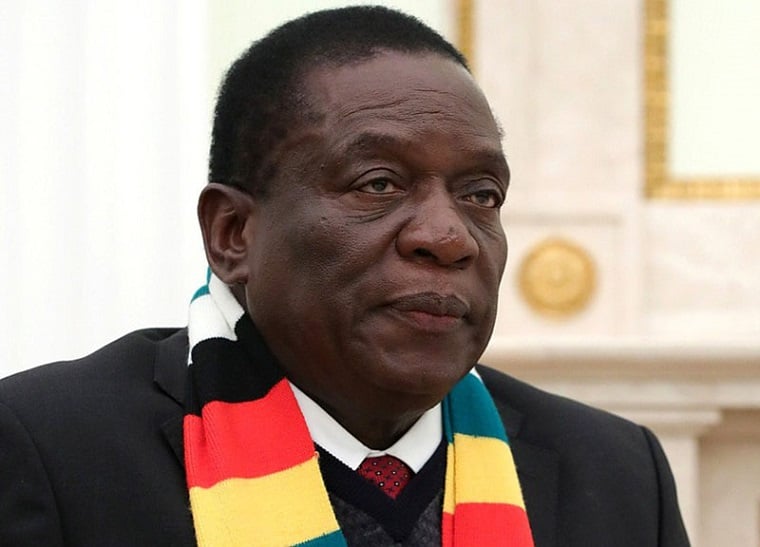Copyright zimeye

By A Correspondent President Emmerson Mnangagwa has admitted that Zimbabwe is facing a deep economic crisis but once again placed the blame on Western sanctions, sidestepping accusations that his administration’s mismanagement and corruption have driven the country into turmoil. Speaking at the SADC Anti-Sanctions Day commemorations held at the Heritage Village in Harare on Saturday, Mnangagwa painted a bleak picture of the economy but insisted that so-called “illegal, heinous sanctions” were to blame for the nation’s suffering. “We are facing head-on challenges and shocks, such as these illegal, heinous sanctions, climate change-induced droughts, and other public health emergencies,” he said. The president urged citizens to remain resilient, saying Zimbabweans must continue to be “masters of our own destiny.” While acknowledging the economic hardships faced by ordinary citizens, Mnangagwa claimed that the country’s “great walls remain strong” and that the “house of stone will never be breached.” Critics, however, dismissed his remarks as detached from reality, noting that millions of Zimbabweans can no longer afford basic goods amid soaring prices and a collapsing currency. “The flame of our independence, freedom, and sovereignty burns brighter,” Mnangagwa said. “Through unity of purpose, peace, focus, hard, honest work, resilience, and innovative pursuits, any obstacle, in whatever form, can be overcome.” His comments come at a time when inflation continues to spiral, unemployment remains widespread, and public services are deteriorating. Opposition figures and economic analysts argue that the government’s fixation on sanctions is a convenient excuse to avoid accountability for years of policy failures. “Despite the effects of illegal sanctions, our national economy has been on a positive growth trajectory,” Mnangagwa claimed, pointing to what he described as “increases in foreign currency earnings” and “resilience” in key sectors such as mining and manufacturing. He insisted that Zimbabwe remains on track to achieve Vision 2030 — the government’s plan to transform the nation into an “Empowered and Prosperous Upper Middle-Income Society.” However, many observers dismissed these assertions as state propaganda. They point to widespread hunger, empty hospital shelves, and a cost-of-living crisis that continues to devastate families across the country. Mnangagwa admitted that sanctions have made it “difficult for Zimbabwe to access global lines of credit,” but his critics say corruption, policy inconsistency, and lack of investor confidence have caused far more damage than any Western restrictions. “Regrettably, the illegal economic sanctions have fundamentally disrupted the ability of our country to access global lines of credit,” he said, adding that his administration has adopted “home-grown innovative development financing models” to sustain the economy. At the same event, Mnangagwa launched a government-backed book titled Standing Against Illegal Sanctions, Resistance, Policy Innovations and Advocacy, which seeks to defend his administration’s policies over the past two decades. Despite the president’s rhetoric, public frustration continues to grow. Many Zimbabweans say the government’s repeated reliance on the sanctions narrative is an attempt to mask deeper governance failures. “We’re tired of hearing about sanctions. We can’t eat speeches — we need real change,” an angry Harare resident told journalists after the speech. This sentiment reflects growing impatience across the country, as citizens face soaring costs of living, shortages of basic goods, and declining public services, leaving many skeptical of the government’s assurances and long-term economic plans.



